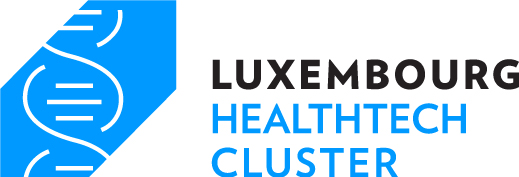LIST (ITIS)
LIST (ITIS)
Core business
The Luxembourg Institute of Science and Technology (LIST) is a mission-driven Research and Technology Organisation (RTO) that develops advanced technologies and delivers innovative products and services to industry and society. As a major engine of the diversification and growth of Luxembourg’s economy through innovation, LIST supports the deployment of a number of solutions to a wide range of sectors, including energy, IT, telecommunications, environment, agriculture and advanced manufacturing at national and European level. Thanks to its location in an exceptional collaborative environment, namely the Belval Innovation Campus, LIST accelerates time to market by maximising synergies with different actors, including the University of Luxembourg, the national funding agency and industrial clusters.ITIS (IT for Innovative Services), one of the three departments of LIST, focuses on smart systems. In complex, and continuously changing, technical, social and regulatory environments, innovative organisations need smart systems to rapidly analyse, predict and manage the needed transformation and adaptation of their operation. IT is instrumental in the creation of pervasive smartness to provide the needed rapid insights, while integrating business expertise and organisational knowledge for trusted and informed decision making and execution. Committed to multidisciplinary, ITIS conducts research to develop models, methods, software and devices for smart systems, fusing human and technological aspects.
ITIS applies also its expertise in the healthcare sector and more specifically advanced ICT applied to healthcare (eHealth) in domain such as:
- patient related applications;
- standardisation, technical and semantical interoperability;
- model-based information engineering and data analysis;
- data protection and data privacy;
- data security and risk management;
- medical imaging and DICOM Tools; and
- medical radiation and dose management.
Products & services
GECAMed
Integrated with the national DSP service (Dossier de Soins Partagé) provided by the national eHealth platform (www.esante.lu), GECAMed is an all-in-one medical office management software that simplifies a large proportion of tasks carried out by healthcare professionals by enabling them to easily access numerous documents on their patients, such as prescriptions or medical test results, regardless of whether they or another doctor recorded them. First launched in 2005 with the support of the Ministry of Health and other sponsors, the software has since been constantly adapted and improved in order to meet the needs of professionals in the healthcare sector in Luxemburg.
The software is free and open source, complying with data security and protection guidelines established by the eSanté Agency, and is the first Luxembourgish software that has been certified by IHE Europe, for supporting some of IHE’s high interoperability standards for healthcare systems.
Website: www.gecamed.lu
WikiFood
WikiFood.eu features an award-winning* online database of the ingredient lists of more than 28,000 food products available in Europe. Uploaded by individual users or provided by food manufacturers, each product listing includes information on the producer, country of origin, full ingredient list with photo and optional information including allergens. Nutritional quality is shown using an easy-to-understand traffic light system. Products on WikiFood.eu can be found by browsing through categories, by excluding specific ingredients, such as gluten or eggs, or by specific characteristics such as high fiber or low fat.
In addition to the website, the database can be accessed through mobile apps which enable efficient data entry of ingredient list with OCR text recognition and a natural language processing system. New entries are automatically categorized to identify allergens, synonyms or spelling mistakes.
Website: www.wikifood.eu
* WikiFood.eu received the “Patient Experience” award at the Luxembourg Healthcare Summit 2015.
Major HealthTech projects
Model based risk management for a better data security
The HEEL (HEalth modELling) project supports the management of cyber risks in the healthcare sector. The project focuses on a participative approach to design reference models of laboratory, radiology and emergency and to share knowledge between all stakeholders in a SaaS risk management tool called MONARC (provided by the GIE Smile). HEEL generates not only value for individual organisations with significant time and effort savings in efficient cyber risk management, but also for the whole healthcare by fostering the implementation of best practices in Luxembourg.
Large scale integration of heterogeneous Medical Data on Chronic Diseases
According to the World Health Organization (WHO), the number of patients with chronic disease keeps growing. Early and systematic interventions are highly recommended to prevent health complications and reduce the disease spread. Advances in healthcare such as medical sensors and wearable devices offer new opportunities to accelerate decision making by detecting and predicting unexpected situations. However, the proliferation of such technologies creates new challenges related to data management: data heterogeneity, reliability, and security. The diversity and variety of healthcare data, their huge volume and distribution hinder data processing and analytics to provide timely decisions. Focusing on medical sensors, our research aims at integrating semantic based methods to address the data heterogeneity challenge in big data environments in order to improve the physicians decision making process.
e-SENS
The main objective of the European project, e-SENS is to ensure the interoperability of online health, business, procurement and justice functionalities through the re-use of cross-domain IT “building blocks”.
The eHealth domain of e-SENS is one of many piloting areas to be tested in the real life environment. LIST collaborates with the Agence eSanté and National Contact Point of Italy, Greece and Portugal to pursue the enhancement of the cross border services started in the former large scale pilot epSOS. The aim is to provide access to patient summaries for citizens and electronic prescriptions for health professionals across Europe. These two “use cases” support the implementation of the Directive 2011/24 on the application of patients’ rights in cross-border healthcare. The Directive obliges also Member States to set up a NCP for cross-border healthcare.
Main customers / collaborations
National: Agence eSanté; AMMD (Association des Médecins et Médecins Dentistes); Caisse National de Santé; SMA (Service Moyens Accessoires); Croix Rouge; Direction de la Santé; Ministry of Health; Ministry of Social Security; INCCI; LUXITH; Luxembourg hospitals and medical centres; Laboratoires Réunis; Laboratoires Ketterthill; Forges du Sud; Doctena; The Markets Trust; Luxembourg Institute of Health (LIH); University of Luxembourg.International: EHTEL (European Health Telematics Association)(BE); INRA (FR); Max Planck Institut Informatik (DE); Fachhochschule Trier (DE).
Print this page Send by email




